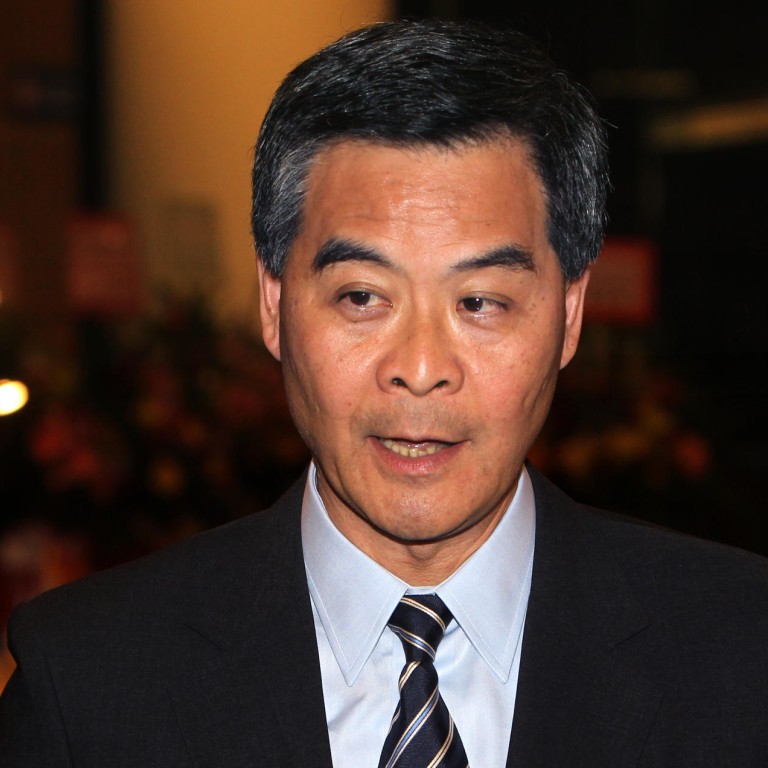
Leung Chun-ying ready to help mainland mums buy infant formula
Chief executive, sympathising with parents' dilemma, suggests direct re-exports from HK
Chief Executive Leung Chun-ying says he is willing for the city to help meet the mainland's needs for infant formula by "re-exporting baby milk powder directly from Hong Kong to the mainland".
Leung said he was sympathetic to mainlanders who relied on Hong Kong's supplies of milk powder - a key target of parallel-goods traders - before new regulations last month curbed the transport of the product across the border.
The Leung administration would be willing to co-operate with mainland authorities to help these people, he said.
"Once the milk powder arrives at our ports or airport, we can re-export [it] directly to the mainland," he suggested in an interview with pastor Enoch Lam Yee-lok that appeared on Christian website Channel J yesterday.
As of March 1, travellers to the mainland are allowed to carry only up to two tins of infant milk, or 1.8kg, per person per day, to limit the unlicensed export of powdered formula for children under three years old.
Demand for non-local formula is high across the border, where parents distrust mainland supplies after melamine-tainted milk killed at least six babies and made 300,000 ill in 2008.
Several milk makers say there has never been a shortage on the mainland, where many foreign brands such as Mead Johnson run factories. But because of the confidence crisis, mainland parents play safe by buying formula sold in Hong Kong, where the packaging is printed with traditional Chinese characters instead of simplified Chinese.
Leung did not detail the logistics of the direct-export proposal, saying only that "we'd have to co-operate with the mainland to figure out how to do this so that babies can be fed, mums will be reassured [of product safety] and prices would remain stable".
A similar plan was tabled during the National People's Congress in Beijing last month.
When Lam asked Leung whether he had expected a backlash against the two-tin limit, he defended the decision.
"Countries such as England, the Netherlands, Australia and New Zealand all have measures to limit the amount mainland Chinese tourists can buy. China simply has so many people with high spending power. With Hong Kong being so close to the mainland, we can't not do anything."
Hong Kong deputy to the NPC Michael Tien Puk-sun, who is also a lawmaker, proposed that the Hong Kong and central governments work together to import infant formula directly from other countries to sell through designated mainland outlets.
But as long as the mainland maintained its import tax on re-exported milk formula, parallel-goods trading would not be eradicated, Terence Chong Tai-leung, associate economics professor at Chinese University, said.
"It's a problem with tax, not with supply," he said. "With the tax, directly re-exported milk formula would still cost more than that sold in Hong Kong, meaning mothers and traders would still come to the city to buy [it].
"It would be better for the government to focus on maintaining an adequate supply of milk formula for local mothers instead."
Medical-sector lawmaker Dr Leung Ka-lau said of the direct-export plan: "This is nothing new. Big trading firms have all along been exporting large shipments of goods from Hong Kong to the mainland."

